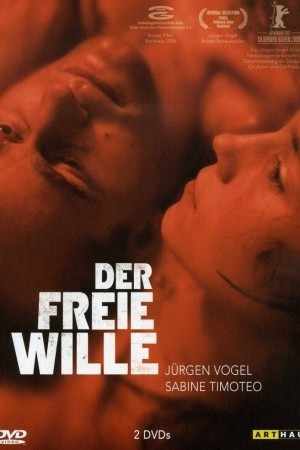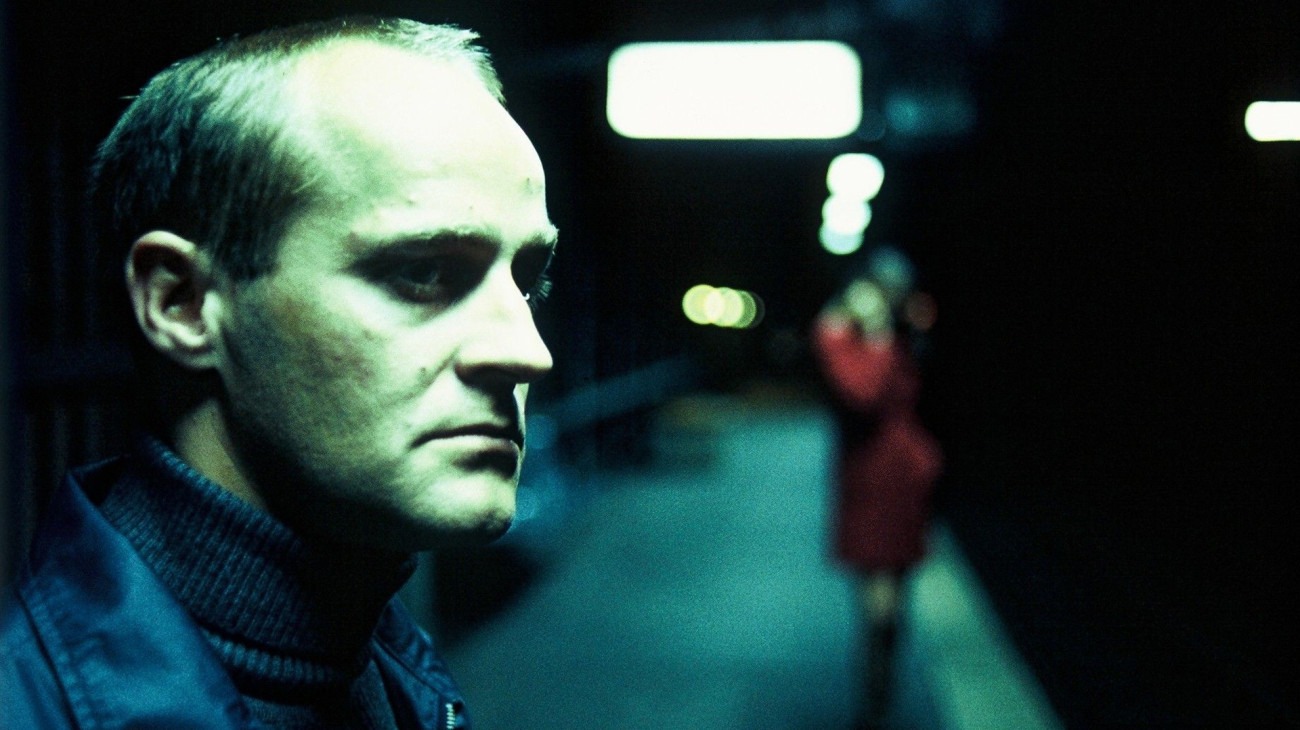
The 42nd Chicago International Film Festival
I try not to judge movies based on what I want them to be (in which I often fail), nor on my moral opinion of their content (in which I fail even more often). But I'm not in the least bit ashamed to confess that if a film is going to show a graphic rape scene in the first ten minutes, it's got a lot of ground to make up in my esteem. And that's ignoring the fact that five minutes before the rape scene, the film's protagonist throws a tray of dishes at a crowd of schoolchildren.
A bravura opening, although by no means pleasant, it's shocking how well Der Freie Wille manages to make up for those scenes, although I remain unpersuaded that the rape scene was, strictly speaking, necessary. The film is the story of Theo (Jürgen Vogel), a grim and scary man with an unbridled fear of women that manifests itself violently. It is also the story of Nettie (Sabine Timoteo), a 27-year-old woman who has grown sick of living with her father, and so finally breaks out to live her own life. And it is the story of their time together, two emotional cripples who manage to to give each other the strength to experience life.
That makes it sound like a cheerful American romantic drama, which it unmistakably is not. The film spends a lot more time focusing on the "emotional cripple" side of things than the "giving strength" side, and it ends in a place that is very dark, and not at all where it began, but where it never could have come to if the characters hadn't have allowed themselves to feel vulnerable. One might argue that the film is about how much worse being alone is when you know what you're missing.
The film runs for a jaw-dropping 163 minutes, and it doesn't earn that, exactly, but I can't argue that it should be any shorter. It's a long and painful road for the two leads to learn trust, and by stretching the film so long, director/co-writer Matthias Glasner invests the audience in the proceedings: we spend a great deal of time watching these people and getting to know them, and so become sympathetic to their plights, almost against our will (the memory of that opening rape scene never quite fades). Frankly, the film would be considerably less effective if it were shorter, even though it would be much less boring. A paradox? Ah, bless the Germans.
The title seems to refer to Theo's attempt to live free of his violent urges, and Nettie's desire to live her own life at all. It's ironic, of course - it's European. Their will is not free when they are happy: it's bottled up and hidden. When their will is freed, it destroys them.
If only Der Freie Wille was as interesting a movie as it is a character study. For a reason that is completely beyond my understanding, the film was shot on video, and not good Genesis video but more along the lines of mini-DV video. Actually, I know exactly why Glasner did this: it was to have the ability to not light anything at all. And while this serves one good purpose (the camera is free to move any which way, seemingly spontaneously), it runs aground on a very bad side effect (the film is too damn dark). It's an ugly film, and while this is a good match for an ugly story about ugly people, it's kind of hard to see things. In particular, it is hard to see the climax. Whether Glasner is telling us that we need to not care so much about climaxes, or proving that only a handful of images are enough to imply an entire scene (the Synecdoche Theory of filmmaking), it doesn't change the fact that the last five minutes, more or less the first time anything significant has happened, consists of a black blob moving against a blacker background.
Fun fact: Jürgen Vogel won an award for "Outstanding Artistic Achievement" at the Berlinale festival, which apparently means that his performance was judged the single finest thing in competition. It's good but...damn.
7/10
A bravura opening, although by no means pleasant, it's shocking how well Der Freie Wille manages to make up for those scenes, although I remain unpersuaded that the rape scene was, strictly speaking, necessary. The film is the story of Theo (Jürgen Vogel), a grim and scary man with an unbridled fear of women that manifests itself violently. It is also the story of Nettie (Sabine Timoteo), a 27-year-old woman who has grown sick of living with her father, and so finally breaks out to live her own life. And it is the story of their time together, two emotional cripples who manage to to give each other the strength to experience life.
That makes it sound like a cheerful American romantic drama, which it unmistakably is not. The film spends a lot more time focusing on the "emotional cripple" side of things than the "giving strength" side, and it ends in a place that is very dark, and not at all where it began, but where it never could have come to if the characters hadn't have allowed themselves to feel vulnerable. One might argue that the film is about how much worse being alone is when you know what you're missing.
The film runs for a jaw-dropping 163 minutes, and it doesn't earn that, exactly, but I can't argue that it should be any shorter. It's a long and painful road for the two leads to learn trust, and by stretching the film so long, director/co-writer Matthias Glasner invests the audience in the proceedings: we spend a great deal of time watching these people and getting to know them, and so become sympathetic to their plights, almost against our will (the memory of that opening rape scene never quite fades). Frankly, the film would be considerably less effective if it were shorter, even though it would be much less boring. A paradox? Ah, bless the Germans.
The title seems to refer to Theo's attempt to live free of his violent urges, and Nettie's desire to live her own life at all. It's ironic, of course - it's European. Their will is not free when they are happy: it's bottled up and hidden. When their will is freed, it destroys them.
If only Der Freie Wille was as interesting a movie as it is a character study. For a reason that is completely beyond my understanding, the film was shot on video, and not good Genesis video but more along the lines of mini-DV video. Actually, I know exactly why Glasner did this: it was to have the ability to not light anything at all. And while this serves one good purpose (the camera is free to move any which way, seemingly spontaneously), it runs aground on a very bad side effect (the film is too damn dark). It's an ugly film, and while this is a good match for an ugly story about ugly people, it's kind of hard to see things. In particular, it is hard to see the climax. Whether Glasner is telling us that we need to not care so much about climaxes, or proving that only a handful of images are enough to imply an entire scene (the Synecdoche Theory of filmmaking), it doesn't change the fact that the last five minutes, more or less the first time anything significant has happened, consists of a black blob moving against a blacker background.
Fun fact: Jürgen Vogel won an award for "Outstanding Artistic Achievement" at the Berlinale festival, which apparently means that his performance was judged the single finest thing in competition. It's good but...damn.
7/10






